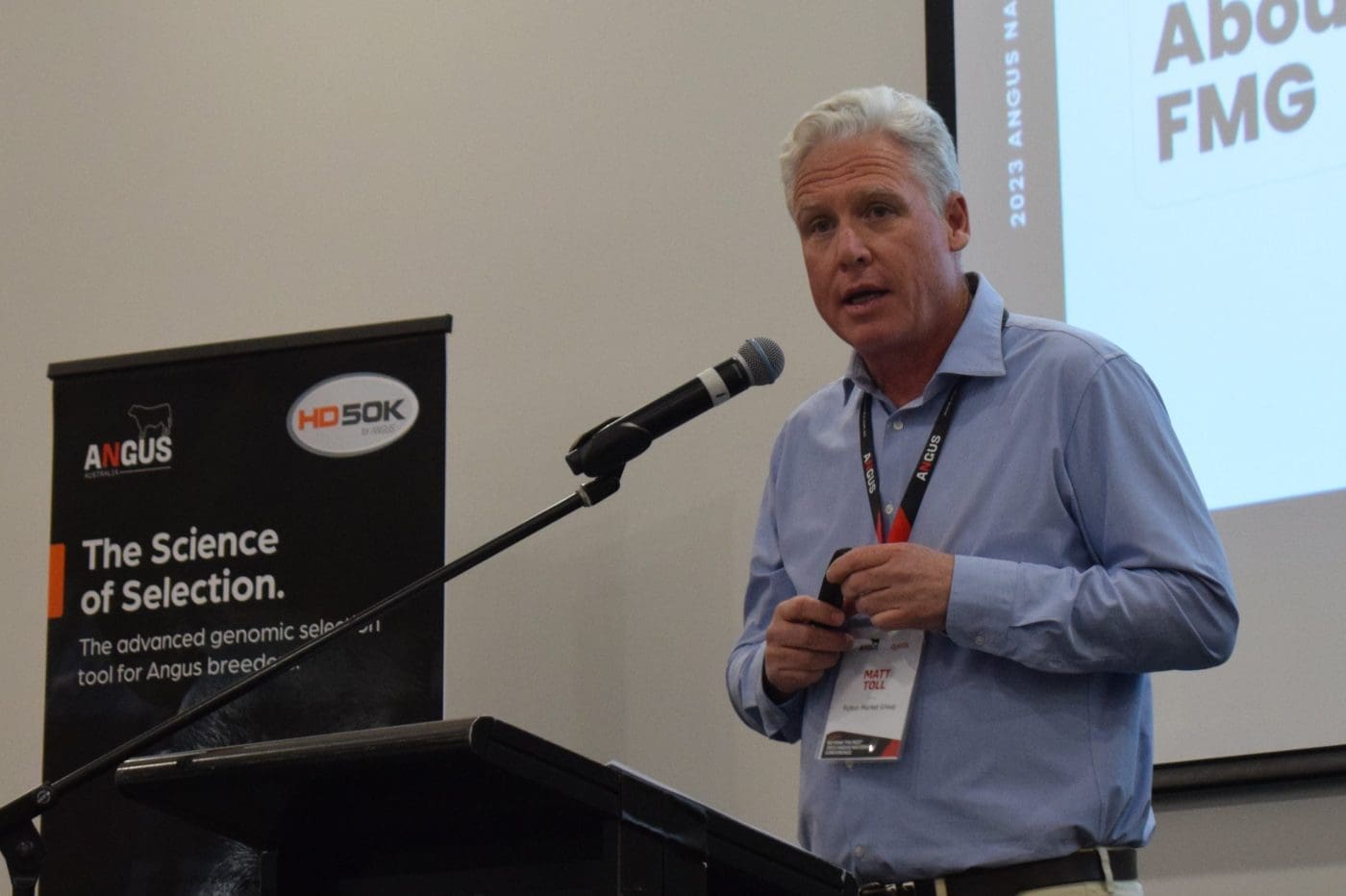THE head of the company in charge of procuring most of McDonald’s meat has explained why Australian beef will be needed into the future as the burger chain looks to keep expanding.
Fulton Market Group was formed five-years-ago in an attempt to consolidate McDonald’s meat supply chain, finding efficiencies and using the company’s leverage to reach sustainability and other goals. The company was named after the Fulton Market district of Chicago, which is credited for being the beginning of the local meat packing industry.
Founder and chief executive officer Matthew Toll presented to this week’s Angus Australia conference in Tamworth – the company still has several Angus beef burgers on its menu.
Mr Toll said Australian beef is in 70pc of McDonald’s restaurants globally and it was important for it to stay that way.
“With McDonald’s consolidating its supply chains, Australia is really key to that strategy,” he said.
“Not only from a supply perspective, but also from a quality and sustainability standards point of view.
“We think the numbers from Australia will lift in the next year too, basically through increased sales.”
Relationship with Angus still strong
McDonald’s launched its Angus burger range 14-years-ago – a venture that appears to have been successful for both restaurant chain and the breed.
Mr Toll said the company has averaged 7,500T of Angus beef over the past five years, with that number peaking at 9,500T in 2019. He said 56pc of the Australian Angus beef is exported and 44pc consumed domestically.
“McDonald’s Australia still has two Angus burgers on the menu that are permanent – there’s not too many countries in the world that permanently have an Angus burger,” he said.
“They are backed up by limited time offers, which are really good and always spike volumes.”
Potential growth in China
The burger chain uses Angus meat in many Asian countries, including Japan and Korea, with China being the biggest customer.
Mr Toll said the volume of beef going into China has decreased in recent as a direct result of Covid lockdowns.
“Covid really knocked the Angus volumes around and that is primarily because the volumes of beef into China backed right off,” he said.
“China is really important for Angus out of Australia, they have four burgers that are permanently on their menu and with the country opening up after Covid, we are already seeing a rebound in Angus requirements from China. We have already done more Angus to China this year than we did for the entirety of last year.”
Mr Toll said McDonald’s had plans to increase its number of restaurants in China.
“China will be a major part of the focus over the next few years,” he said.
“That will involve meat from across the world and assuming Angus remains an important offering on the menu, that will lift the volumes of Angus coming out of Australia.”
Sustainability key for customers and finance
McDonald’s has made several public sustainability commitments about animal welfare and the environment. Mr Toll said it was a key part to servicing customer needs and accessing finance.
“I think banks will increasingly be asking all of us for different bits of information to allow them to lend and I think we will see split rates, based on sustainability,” he said.
“We are looking to digitise the entire supply chain because it is crucial for all of our businesses that we capture the data to be able to verify the outputs we are delivering on.
“Historically we have only had to have a relationship with the packers, which has worked really well. While we don’t necessarily want to have a direct relationship around buying livestock, we do want to understand how they aree raised – which I do think will have a good outcome for everyone.”
Mr Toll spoke about some “beef on dairy” projects the company is involved – where a beef calf is born out of a dairy calf.
“It is large in the US and growing, it is large and established in Europe and I think a decision from one dairy company in New Zealand will make it grow there,” he said.
“In these nurseries they are capturing data from birth and there seems to be some benefits in-terms of CO2 equivalent calculations. Some packers in the US say they are grading well and with improved beef genetics there is potential for more consistent performance.”
McDonald’s and FMG joined a group of processors and producers in Central Qld last year, to work out some of the issues the entire industry is facing. Mr Toll said the company was looking to do similar work in other parts of Australia.
“People talk about us as a beef industry, but in reality we are very silo’d into different parts of the supply chain,” he said.
“It is on us to understand all parts of the supply chain, we’re happy to share data and goals more transparently in-order to help everyone involved and for better overall outcome.”
- Beef Central has more stories to come from the Angus conference. See today’s Weekly Grill podcast, featuring Kerry Lonergan’s interview with Angus Australia president Erica Halliday

